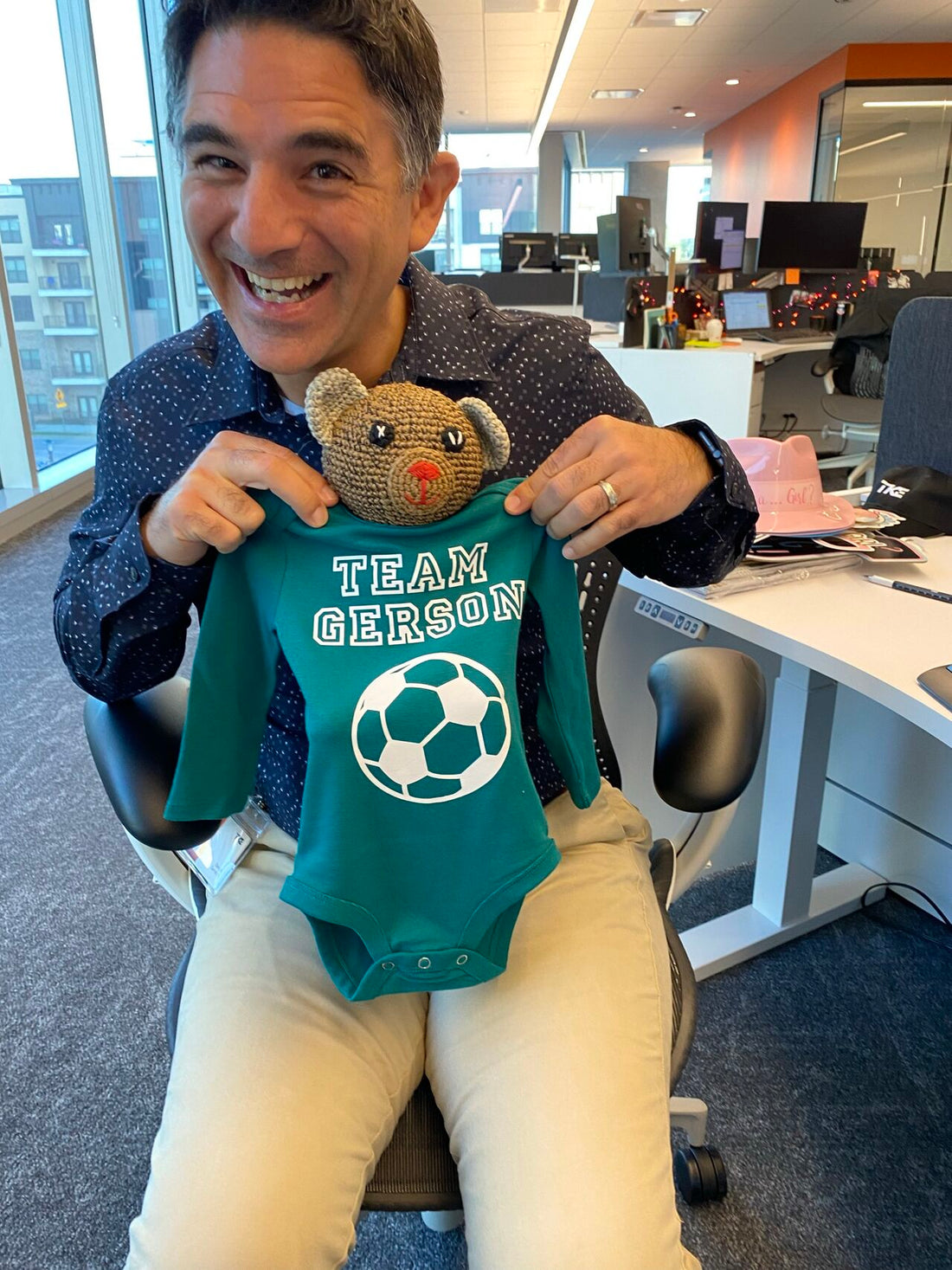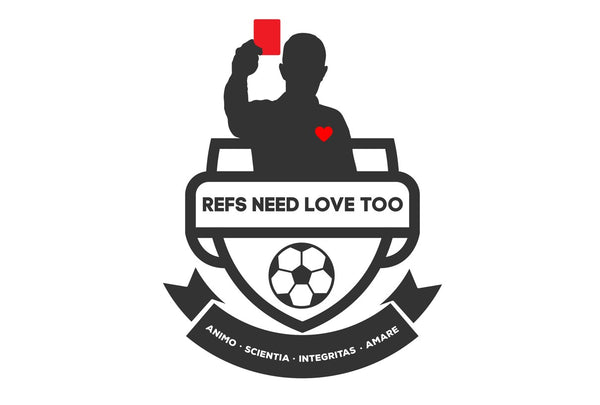
Lessons from the pitch to the boardroom
Share
Being a referee on the pitch, can provide excellent training for success in the corporate world. There are so many great lessons that can be learned. Here are a few...
Show up on time
If you’re on time you are late. If you are five minutes early you were on time. For a Referee at a regular club recreational match, you should arrive a minimum of 30 minutes at the field before kick off. For MLS Next a minimum of 45 minutes. If you’re doing semi professional, or above easily an hour or an hour and a half to do all of the proper
pre-match checks and have a proper pregame with match officials, coaches, and players.
Look the part
Dress for the job you want not the job you have to. Whether it’s on the pitch or at the office, you need to dress professionally. I am always dressed in a fashion that if I had to go see a customer that day, regardless of whether or not, that’s on my agenda, I am going to look ready to step in front of an important customer or my CEO. I always want to look like I am ready to step into an important meeting if needed. Also, I want to look like I’m ready not for the job. Not the job I have, but for the job I want to half to three years from now. It’s the same thing on the pitch.
If you show up looking sloppy and do not look professional, you can forget about having credibility when the match kicks off. People will judge you based on your appearance. Don’t pretend like it doesn’t happen. If you’re dressed like a professional referee and well put together, it will go a long way to have a match control and on the pitch with players.
Communication is critical
It is not a nice to have on the pitch or the workplace. It's a must have. Yes, can you get a job or be referee without great communication skills, but your career will be limited both on the pitch and in the office. Having good communication goes well beyond just the spoken word. It's body language. It's your arm mechanics. It is the look on your face. Does it look like you are enjoying yourself out there does it look like you’re taking it seriously does it look like you’re giving your best effort? All of those things matter regardless of distance in the office or on the soccer field.
Verbal communication is also absolutely critical. If I can’t hear you, it’s gonna be really hard for you to be a presenter. On the soccer field we are presenting. We use our body language, our eye contact, our gestures, and of course, my voice to communicate. We need everyone on the field to know what is going on. Obviously, we’re not trying to insert ourselves in the middle of play all the time, but when there’s a decision to be made, we need to be clear and understood.
Just like at the office, on the pitch some people are gonna like you and some people aren’t. It is the way of the world. I often feel like in my job that if I’m not making someone uncomfortable, I am probably not pushing hard enough. I’m not trying to be difficult, I just know that the expectation for me is to not simply get by but to try and push our business forward to achieve our company goals. They were going to be times when I might have to ask someone in another department or something or someone on my own team that may be challenging for them. They might not like that. But I have to handle it professionally and be empathetic. There are also sometimes going to be people who simply do not like you for personal reasons. For whatever reason they don’t appreciate you. I can’t change that. All I can do is be the best person I can be. On the soccer pitch. It is virtually guarantee that every match you were going to make calls that people disagree with.
That is OK. We have to get comfortable with critique we have to get comfortable with the fact that people have different perspectives and hope that we made different calls. It is OK.
Mistakes are a part of life
We need to get comfortable with making mistakes. If you are never making any mistakes at your job, then that job is probably way too easy for you and you need to find a new challenge. on the soccer pitch, every game is different. Every play is different and they were gonna be times when you make a mistake. That is OK. Learn from it and move forward. Don’t dwell on It. Don’t let it define you. All of the best athletes have missed big shots. It doesn’t make them a bad athlete. What makes them great is that he comes back from those mistakes and continue to excel.
Treat everyone with respect
At my office there is not a single person that I don’t greet and show appreciation too. It doesn’t matter if it is the security guard at the front desk or the janitor cleaning our bathrooms. I am going to greet them with a smile and wish them well. It is the same thing on the pitch. As soon as I show up for a match, you will see me greeting the coaches and players. and my fellow referees. Even before the match, if I’m simply asking parents to back up from the sideline, I am doing it nicely and with a smile on my face. When I do my pregame with the players, I tell them this nice calm, professional voice that I’m using with you right now is the exact one that I’m going to use with you on the pitch during the game I asked that you do the same courtesy back to me. I find that using a calm, respectful and empathetic tone of voice, de-escalate high-pressure situation and allows us to have a conversation as opposed to a yelling match. Nobody wins in an argument. No one is listening. We need to be able to have dialogue to communicate, and that requires a calm tone of voice and willingness to listen.
Be reliable
Referees are independent contractors. If we don’t show up when we say we were available and we cancel our commitments to assignors, we should expect that we are not gonna get assigned important matches in the future. My boss at my company knows if I say I am going to do something, I do it. If for some crazy reason I can’t deliver on a commitment. I tell him well in advance. He never gets surprised.
As a Referee you have to treat this as a serious job. If you don’t show up when you’re supposed to, turned back assignments late, or don’t show up to the field well in advance for a match, it is disrespectful, and it will be difficult for you to advance in the future.
Fail to prepare. Prepare to fail.
What are you doing to get ready for that next big presentation? What are you doing to stay on the cutting edge of change in your industry? What are you doing to stay mentally and physically strong to be able to give your best at the office? What analytics do you track regarding your performance? What are your goals?
On the pitch how often do you review the Laws of the Game? How often do you review your performance on the pitch? Do you look at your heat maps? Do you look at your analytics? Do you ask mentors and peers for feedback? Are you doing the fitness work during the week to be able to perform on the weekends? If you are not then, you are certainly going to be falling short of peak performance.
It is the work we do in advance of the presentation that enables us to deliver with professionalism and conviction in front of our customers or Peers.
Handwritten notes matter!
A heartfelt message of appreciation, written by hand, just hits different. It shows that you took extra time to give a little bit of yourself to others. You are probably wondering, "what does this have to do with being a referee?" Nothing really. BUT in my REFS NEED LOVE TOO business, for every single order, and I've shipped over 1,000 in the past year, every single package I send out comes with a personally written note (on a red card of course! :->). I have received so many messages of sincere appreciation for those notes. People wind up posting them on social media. It is a rare thing these days and it sets you apart from the masses. Take the time and write a note.
That's just a few of things that I think cross over from the pitch to the boardroom. These are great lessons whether we are wielding a whistle or a keyboard at the office.
